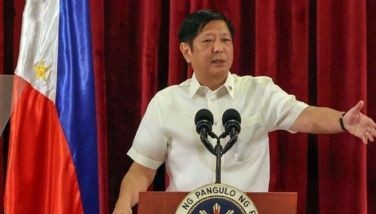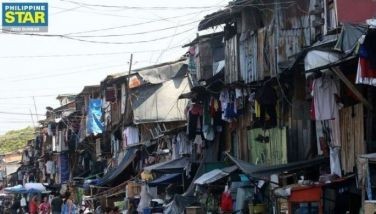When business is not just business: The politics of investment promises

An analysis on the Philippines' investment and financing agreements with China
While it is tempting to read recent events in the Philippines as being solely influenced by the president’s personal sentiments and as designed by his foreign affairs team, the benefits of a bilateral relationship are the product of dynamics within two countries.
Thus, although President Rodrigo Duterte has enlivened the Philippine side of the relationship, the path that the two countries’ ties will take also depends on China’s interests in its neighboring region. Learning lessons from elsewhere in Southeast Asia, the government should keep its eyes open to the possible political and financial consequences of heavily tapping Chinese loans and of closer entanglement with some of China’s state-owned enterprises.
The principles of China’s economic diplomacy
Duterte is an important figure in the “springtime” of the Philippines-China relationship, but Beijing gets equal credit. China’s new opening into the Philippines represents that country’s latest success in a concerted effort to connect key transport lines emanating from or around China and to simultaneously support Chinese state-owned infrastructure firms. Whether its called One Belt One Road, the 21st Century Maritime Silk Road, or another similar term, the bottom line is the same: China is rebuilding itself at the center of the world’s trading lanes.
With that end in mind, the pillars of China’s economic strategy are the two-fold offer of loans for infrastructure development and, typically, the proviso that China’s firm be contracted for the projects. China’s major construction firms are largely state-owned enterprises, ensuring that a large slice of what China lends a country returns to the Chinese government. The receiving country borrows the money to pay for infrastructure that would benefit its residents and spur enough growth in the economy to pay off the investment. Thus, when Duterte returned from China with US$9 billion in new credit facilities, the expectation is that some of that available credit will be tapped for investments in infrastructure.
This method of cooperation is not unique to China, but typical of the Philippines’ dealings with international organizations or other countries that provide low-interest loans. Traditionally, when it needs to, the Philippines borrows money mainly from the World Bank, the Asian Development Bank, or Japan for large investments. According to ADB, developing countries in Asia will require US$8 trillion in infrastructure investment between 2012 and 2020—an amount that far outstrips the US$125.6 billion that was on offer in 2012. For this reason, the World Bank and the ADB welcomed China’s establishment of the Asia Infrastructure Investment Bank (AIIB) in 2015, which the banks believe could help meet the shortfall in loans available internationally.
Developing countries in Asia will require US$8 trillion in infrastructure investment between 2012 and 2020—an amount that far outstrips the US$125.6 billion that was on offer in 2012.
The cautionary tale of NorthRail
Although China has significantly increased its credit available to developing countries in recent years, the Philippines is no stranger to Chinese financing for domestic projects. Between 2002 and 2007, the Philippines reportedly received the largest share of China’s loans to Southeast Asia. The biggest project, and the flagship of the two countries’ economic cooperation, had been the NorthRail project (the North Luzon Railway), whose first phase was valued at more than US$500 million. The Philippines obtained a US$400-million loan from the Export-Import Bank of China (EximBank) to pay for the majority of the project’s first phase.
Between 2002 and 2007, the Philippines reportedly received the largest share of China’s loans to Southeast Asia.
The Philippines contracted China National Machinery and Equipment Group (now Sinomach) to build the railway. The problems set in after construction started, as the project was beset with cost adjustments and delays that later had the government scrambling to amend the contract and reduce the scope of work. After all was said and done, the Philippines was to pay 127 million more than initially planned for less work to be completed.
The NorthRail mess ended up in court, and the Supreme Court ruled that the contract between the Philippines and Sinomach had been invalid from the get-go. However, the financing agreement between China’s EximBank and the Philippines was still in place, making the government still responsible for paying back the US$184 million that had been disbursed to Sinomach. Matters turned worse when, after the Supreme Court nullified the contract, EximBank declared a default event that allowed it to demand that the Philippines immediately pay in full.
The Philippines negotiated to pay EximBank back over a two-year period, but the Philippine government and Sinomach are still locked in legal battles. The experience has become a cautionary tale for the Philippine government over the standards required of international contractors and the pitfalls of borrowing money for uncertain returns.
The Beijing deals are not just business
In any case, Duterte’s delegation returned from Beijing with US$15 billion for 26 different commitments, but not yet contracts. Nine commitments are related to transport infrastructure projects, of which six are in partnership with the state-owned China Communications Construction Company (CCCC) or its subsidiaries China Harbour Engineering Company, China Road and Bridge Corp., and CCCC Dredging. It will be for the president and the NEDA Board to investigate these companies’ ability to carry out projects to completion and full satisfaction.
Both China Harbour Engineering Company (CHEC) and China Road and Bridge Corp. have projects around the world. CHEC, for example, is building a bridge in Brunei, a deep sea port in Myanmar, and a multi-use development in Indonesia. At the same time, some of the two companies’ projects have drawn local opposition, notably in Sri Lanka and Papua New Guinea, but also in Costa Rica, Guyana, and Kenya. In Sri Lanka, Reuters reported that “President Maithripala Sirisena’s administration has suspended most Chinese infrastructure projects that, it says, were badly priced and financed on onerous terms harmful to the national interest.” Of course, CCCC Dredging is infamous for carrying out the Chinese government’s dredging work in the Spratlys.
Beyond commercial diligence, however, the Philippines should consider if there are political strings attached to any low-interest loans it taps and in its partnerships with foreign state-owned firms. Loans are not inherently bad, but the political pitfalls attached are worth examining.
The Philippines should consider if there are political strings attached to any low-interest loans it taps and in its partnerships with foreign state-owned firms.
Just this year, it was discouraging for the Philippines to witness the constraints that some of its Southeast Asian neighbors faced in voicing their opposition to important politico-military developments in the region. At this year’s ASEAN meeting in Laos, Cambodia’s willingness to block messages from the important joint statement has been attributed to their reliance on China’s funding; Cambodia announced that was receiving US$600 million in new Chinese aid just days after the diplomats tussled in Laos. In pursuing his independent foreign policy, Duterte should be careful to ensure he does not inadvertently tie the country’s hands in defending the national interest.
- Latest
- Trending































